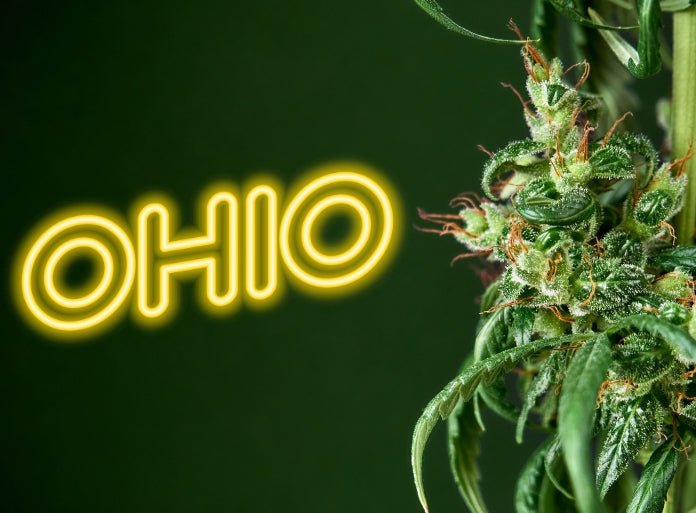Debunking the idea that terpenes alone provide cannabis variations with their unique odor profile, researchers have found previously unknown elements responsible for marijuana’s distinct smell.

Throughout its long and varied history, cannabis has been known for its many identifiable characteristics, including its extremely distinctive aroma. For decades, cannabis researchers attributed the plant’s highly recognizable scent to a part of the plant known as terpenes.
A terpene is an aromatic compound that determines the scent of many different types of flowers in herbs. In marijuana, terpenes emit a skunky, pungent, or musky aroma that bestows the cannabis plant with its distinguishing smell and contributes to its flavor.
However, thanks to a new study published by the American Chemical Society, there may be evidence of “previously undiscovered cannabis compounds” responsible for providing each cannabis variation with its unique olfactory profile.
As first reported by Marijuana Moment, a team of scientists from several marijuana extraction and testing companies published their research findings this month in the journal ACS Omega, saying that “while aroma is a key property in differentiating cannabis varieties and user preferences, the importance of terpenes appears to be overstated.”
While terpenes do comprise roughly 1% - 4% of the total mass of cured cannabis flower and most assuredly factor into cannabis’ odor, the authors wrote, they “in general provide minimal information regarding the unique aromatic attributes of many cannabis varieties.”
Instead, the study attributes much of the smell variation to items known as “flavorants,” a class of chemicals that includes esters, alcohols, and other compounds. Similar to terpenes, flavorants are characterized as volatiles and can spread quickly through the air. Scientists also discovered that flavorants can create similar scents between cannabis varietals with different dominant terpenes.
In a company press release, TJ Martin, vice president of research and development at the extraction company Abstrax, said that the team “found clear correlations between key minor compounds never before seen in cannabis that produce some of the most desirable aromas.”
“After analysis by our sensory panel, in tandem with our analytical data, it became evident that terpenes, while essential in producing many of the typical aromas in cannabis, do not necessarily differentiate many varieties with distinct scents,” he said.
"After analysis by our sensory panel, in tandem with our analytical data, it became evident that terpenes, while essential in producing many of the typical aromas in cannabis, do not necessarily differentiate many varieties with distinct scents.”
- TJ Martin, VP of Research and Development at Abstrax
Along with providing a clearer understanding of those elements contributing to a marijuana varietal’s distinctive smell, the paper points out that cataloging new categories of compounds “provides a new opportunity to classify varietals using key desirable aroma attributes.”
“The discovery of these compounds will play a crucial role in validating cannabis’ authenticity and accurately classifying cannabis varieties in the future,” said Abstrax co-founder and CEO Max Koby, adding that the findings are essential “for consumers, researchers, brands, cultivators, labs, regulators, and everyone in between.”
"The discovery of these compounds will play a crucial role in validating cannabis’ authenticity and accurately classifying cannabis varieties in the future.”
- Abstrax co-founder and CEO Max Koby
The flavorants give scientists more specific and unique measures for determining the true one-of-a-kind nature of individual cannabis strains, which could potentially help drive innovation in other areas of research, such as therapeutic marijuana as well.
“Cannabis is used medically for many health ailments, but there are so many questions remaining as to how it works and if we can enhance those properties by creating new varieties with specific chemistries. We hope our work will open new avenues of research for others to better understand this unique plant and harness its full therapeutic potential,” said Iain Oswald, a co-author and principal research scientist for Abstrax.
"Cannabis is used medically for many health ailments, but there are so many questions remaining as to how it works and if we can enhance those properties by creating new varieties with specific chemistries. We hope our work will open new avenues of research for others to better understand this unique plant and harness its full therapeutic potential.”
- Iain Oswald, Co-Author and Principal Research Scientist for Abstrax
In addition to their impact on medical marijuana patients and recreational consumers, the researchers’ findings may also help breeders and growers attempting to develop a specific profile strain and assist packaging experts working to extend product shelf life.
“The discovery that terpenes have less influence on the differentiating characteristics of the aroma of cannabis than traditionally thought may have important ramifications for the legal cannabis industry related to product labeling and marketing, laboratory testing, and quality indicators for end consumers and producers alike,” the paper concludes.
With the DEA considering the Department of Health and Human Services’ recent recommendation to move cannabis from Schedule I to Schedule III on the Controlled Substances List, there will be more opportunities and funding for further research on cannabis and hemp in the coming years. Discovering compounds like flavorants is the tip of the iceberg regarding all the scientific bounty awaiting researchers as they continue to gain a better understanding of the mysterious, magical, and remarkable cannabis plant.








































